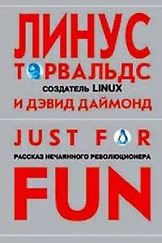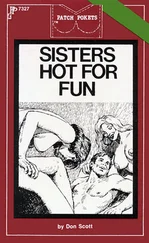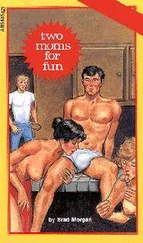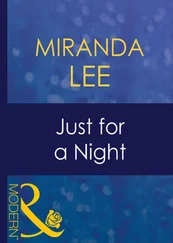And the abuse! I don't get that much abuse these days, but it still happens. People who don't like open source or people who are just upset about bugs will send me email, cursing me over their frustrations. Compared to the amount of positive mail I get, it's minuscule. But it still happens.
Yes, if I had realized how much work and how hard, how difficult a lot of things would have been, I probably would not have done it. If I had had enough knowledge to understand the problems in advance, I probably never would have taken Linux far beyond its initial release. If I had known how much detail you have to get right, and how much people expect of an operating system, I would have been able to envision horror scenarios of things I couldn't handle.
But I also wasn't able to predict the upside. Like how much support I would get, and how many people would be working together on this. So now I change my mind. I guess if I had actually known the upside, I probably would have done it.
The intellectual property debate is so hot these days that I can't wander into a restroom without running across graffiti supporting one side or the other. Some people think that patents and other forms of intellectual property law are the bane of the free universe, and that these laws are not just misguided but actually evil and should be struck down as soon as possible. Others are convinced that pretty much the whole world economy is driven by intellectual property. And those people want to do anything to strengthen the legal status of IP rights.
As a result, the graffiti on the issue gets quite graphic at times.
Of course, most of it is on the virtual restrooms on the Internet, not so much the restrooms in the hotspots of San Jose's nightlife. [2] This, as anybody who lives in San Jose can tell you, is called IRONY: San Jose doesn't have nightlife. People living here drive to San Mateo if they actually want to have fun.
There'll be huge flamefests over some specific issue associated with intellectual property law, with people arguing everything from First Amendment rights to whether IP law might make open source development impossible sometime in the future.
And I find myself certifiably schizophrenic on the issue.
It's not that I don't have an opinion: I have very strong opinions on the worth of intellectual property, but they end up being on both sides of the argument. I can tell you, this can be very confusing. It means that I end up arguing both sides. And I think this is because there really are two sides to intellectual property, and they share nothing but the name.
To many people, including me, intellectual property is all about human inventiveness, about the very thing that makes us humans instead of animals (that, and thumbs, of course). And in that setting, the very name "intellectual property" is an affront: It's not property to be sold like chattel, it's the act of creation, it's the greatest thing any human can ever do. It's Art, with a capital A. It's the Mona Lisa, but it's also the end result of a long night of programming, and it's an end result that you as a programmer are damned proud of. It's something so precious that selling it isn't even possible: It's indelibly a part of who you are.
That kind of creativity -- whether it be in the form of painting, music, sculpture, writing, or programming -- should be sacred. The creator and the thing he or she created have a bond that cannot be severed. It's like the bond between a mother and child, or between bad Chinese food and MSG. But at the same time it's something that everybody in the whole world should be able to be part of, because it is humanity.
And then, in the other corner, weighing in at an approximate seven gadzillion billion U.S. dollars a year, intellectual property is huge business. Human creativity got a price tag, and it turned out to be quite expensive. Creativity is rare, and as a result it is not just expensive but also extremely lucrative. Which brings in a totally different class of arguments, and totally different kinds of people. The kind of people who call the end result of human creativity "property." Not to mention, of course, lawyers.
Read the title of this chapter again. The "property" people are winning. After all, their name stuck. So what's the problem?
The most well-known example of intellectual property is the notion of copyright. Copyrights are basically the codification of the rights of any creator to do with his or her creation as he or she wishes. The "owner" of the creation can decide on how that creation should be used.
Copyrights are also legally very simple to get. You don't have to register your copyright: You are automatically the copyright holder of whatever creative work you do. This is an important distinction from most other intellectual property law, mainly because it actually makes it easy for individuals, not just big corporations, to own copyrights. You can own a copyright, simply by virtue of writing, painting, or generally creating something unique. If you want to, you can add a legend like "(C) Copyright 2000 Yourname Here," but quite frankly, you don't need to. You own the copyright whether you say so or not. Saying so just makes it easier for other people to track you down if they want to use your work.
Of course, just owning a copyright in itself is not very useful. But the fact that you own what you create means that you can control how it is used. You have, for example, the right to sell such a work of art to somebody else, and nobody but the IRS gets to have any say in the matter. But it's about more than just the money, and that's where a lot of people seem to find themselves flummoxed.
For example, you can use your power as owner of a copyright to try to do more interesting things than just sell it. You can license it. This is even better than selling it; instead of selling the work of art you can sell the license to do certain things to it, and still retain the copyright on it. Basically, you can have your cake and eat it, too. This is how the Microsofts of the world get created: endlessly selling the rights to use something, without actually losing anything. No wonder people just love to own this kind of property.
Does anybody perhaps start to see a problem here? If you don't see anything strange so far, I have a bridge and a few pieces of waterfront property to sell you.
The basic problem with intellectual property is starting to show itself: You as the owner of intellectual property can effectively sell it forever, without ever losing anything yourself. You don't risk anything, and in fact you might decide to write your license in a way that basically says that even if the property is flawed , you cannot be held responsible in any way. Sounds preposterous? You'd be surprised.
Flaw: no consumer protection.
It gets worse. The copyright holder not only has the right to sell his or her property without losing it, but also the right to sue people who sell property that looks like his or hers. Clearly the copyright owner has rights over that derived work .
Clearly? Not so fast. Where do you draw the line between inspiration and copying? And what happens when different people come up with similar ideas? Who gets the gravy train of being able to sell his idea over and over and over again, and gets to tell the other people to butt out of his business? It's not just consumers who aren't protected, it's also other creative people who are not protected by the notion of "intellectual property."
What makes the discussion ugly at this point is that a lot of the arguments for stronger intellectual property rights are based on the notion of giving inventors and artists more "protection." What people don't seem to ever realize is that giving such powerful rights to some people also ends up taking rights away from others.
Читать дальше












